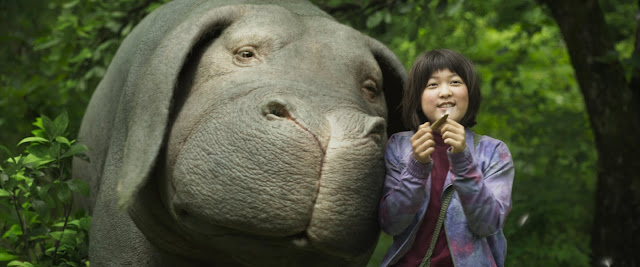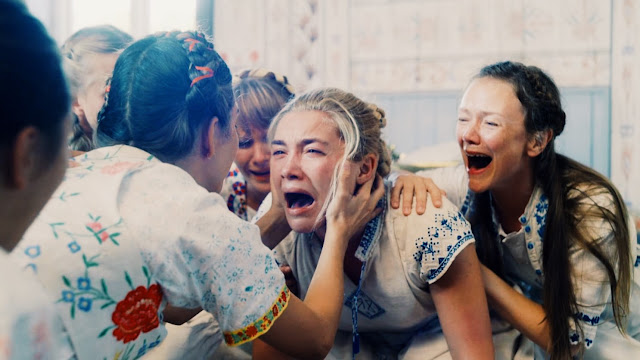L'Avventura (1960)
FILM CLASSIC REVIEW #11
Love, Antonioni Style - an analysis of L'Avventura

Of all the directors in the Italian Neorealism movement, there isn't one quite as transformative over the entirety of his career than Michelangelo Antonioni. Through the span of two decades, he goes from using the soap-opera conventions of Story of a Love Affair to the rule breaking, Godard-esque, posh, hipster phenomenon of Blow-Up. It's a long a vibrant career for one of the world's most cherished filmmakers. The films he made in between, however, think about the troubles of the human couple, and our inability to make rational decisions all the time when it comes to love and lust. La Notte and Red Desert both experiment the complexities of the human experience, through relationships and betrayals of relationships. Of the films leading up to Blow-Up, one in particular is hailed as the best example of his curiosity of the unstable human character, and that it is the picture, L'Avventura. Considering the genre of romance, this I would assume is the Lawrence of Arabia of said genre. It's an epic take on a frighteningly realistic idea that we all may or may not have considered when in a rocky relationship. The question is, is infidelity really worth it, when no one is looking?

L'Avventura opens with the establishment of Sandro and Anna, a couple in a stage of deterioration. They try so hard to put the passion back into their relationship, but they just hate each other. The scene when Sandro visits Anna in her room, the negative chemistry between the two is simply brilliant. Anna kisses his lips, when she really wants to bite his face off. You can see the hatred between them building with every moment. As a way to spice things up, they take a yacht trip with another couple off the coast of Sicily, to visit the towering islands that make up the coast. This is one of the moments where I fell in love with the movie the most. Antonioni uses the entire space of the frame absolutely tremendously. As the yacht approached the island of Basiluzzo, it just leaves you in awe. The calm ocean flowing as the yacht approaches a huge mass of land, which seemed separated from all of human life. When it comes to location scouting, Antonioni couldn't have attempted to find a better one. This is one the most beautiful environments ever captured on cinema. In essence, the first hour of the movie on the island captures the spirit of the characters. You get the feeling of isolation, anger, fear and uncertainty, especially in the scenes where the couples search for Anna when she goes missing. When Claudia runs out to the cliff during the stormy evening, and screams Anna's name in desperation, we all feel the same way. The rain just pours down on the spiky rocks as everyone begins to lose their sense of reason as to where Anna is.
What is arguably even more haunting than the environment of the first hour of the picture, is of course the relationship that buds between Claudia and Sandro for the rest of the picture. It's truly a shocking turn of events. Without even second guessing himself, he moves on to another women after spending the night searching for his wife with her. All bets are off, it seems, with finding and rekindling his love for Anna. Antonioni is telling us that love can change on the flip of a dime. Once we lose track of what we have, we have no problem moving on to the next lover we can find. The fragility of relationships, as Antonioni has it, is very dire. The end of the movie is what moved me the most, and seemed frightening to so many people when the film was released. Out of the clear blue, in the night after a lavish party, Anna returns to reconcile and make love with Sandro. When Claudia runs away, visibly upset, Sandro follows her outside. They meet at the edge, atop a building, as Sandro weeps, for he now love Claudia, but now knows that Anna being alive will haunt him forever. Claudio comforts him, and the film ends. It's a shocking end. Antonioni frames it an astounding way, as he follows the characters around the environment as they collapse under the heap of temptation and desperation. The music even builds to a screeching finale. The whole movie ends more like a thriller, and less like a romantic-drama, which was such a unique creative choice for Antonioni. This ending in particular is what separates L'Avventura from any other movie in its genre. It stuns you with its sexiness, and blindsides you at the end for falling into its trap. L'Avventura is a haunting romantic-thriller, and an excellent Antonioni film that exemplifies his incredible gift at storytelling. Nothing is ever subtle in any of his films, and that's what I enjoy most about them. They hit you hard, when you are least expecting it. Even if you don't know it at first, and I certainly didn't, L'Avventura is going to stick with me.
Love, Antonioni Style - an analysis of L'Avventura

Of all the directors in the Italian Neorealism movement, there isn't one quite as transformative over the entirety of his career than Michelangelo Antonioni. Through the span of two decades, he goes from using the soap-opera conventions of Story of a Love Affair to the rule breaking, Godard-esque, posh, hipster phenomenon of Blow-Up. It's a long a vibrant career for one of the world's most cherished filmmakers. The films he made in between, however, think about the troubles of the human couple, and our inability to make rational decisions all the time when it comes to love and lust. La Notte and Red Desert both experiment the complexities of the human experience, through relationships and betrayals of relationships. Of the films leading up to Blow-Up, one in particular is hailed as the best example of his curiosity of the unstable human character, and that it is the picture, L'Avventura. Considering the genre of romance, this I would assume is the Lawrence of Arabia of said genre. It's an epic take on a frighteningly realistic idea that we all may or may not have considered when in a rocky relationship. The question is, is infidelity really worth it, when no one is looking?

L'Avventura opens with the establishment of Sandro and Anna, a couple in a stage of deterioration. They try so hard to put the passion back into their relationship, but they just hate each other. The scene when Sandro visits Anna in her room, the negative chemistry between the two is simply brilliant. Anna kisses his lips, when she really wants to bite his face off. You can see the hatred between them building with every moment. As a way to spice things up, they take a yacht trip with another couple off the coast of Sicily, to visit the towering islands that make up the coast. This is one of the moments where I fell in love with the movie the most. Antonioni uses the entire space of the frame absolutely tremendously. As the yacht approached the island of Basiluzzo, it just leaves you in awe. The calm ocean flowing as the yacht approaches a huge mass of land, which seemed separated from all of human life. When it comes to location scouting, Antonioni couldn't have attempted to find a better one. This is one the most beautiful environments ever captured on cinema. In essence, the first hour of the movie on the island captures the spirit of the characters. You get the feeling of isolation, anger, fear and uncertainty, especially in the scenes where the couples search for Anna when she goes missing. When Claudia runs out to the cliff during the stormy evening, and screams Anna's name in desperation, we all feel the same way. The rain just pours down on the spiky rocks as everyone begins to lose their sense of reason as to where Anna is.
What is arguably even more haunting than the environment of the first hour of the picture, is of course the relationship that buds between Claudia and Sandro for the rest of the picture. It's truly a shocking turn of events. Without even second guessing himself, he moves on to another women after spending the night searching for his wife with her. All bets are off, it seems, with finding and rekindling his love for Anna. Antonioni is telling us that love can change on the flip of a dime. Once we lose track of what we have, we have no problem moving on to the next lover we can find. The fragility of relationships, as Antonioni has it, is very dire. The end of the movie is what moved me the most, and seemed frightening to so many people when the film was released. Out of the clear blue, in the night after a lavish party, Anna returns to reconcile and make love with Sandro. When Claudia runs away, visibly upset, Sandro follows her outside. They meet at the edge, atop a building, as Sandro weeps, for he now love Claudia, but now knows that Anna being alive will haunt him forever. Claudio comforts him, and the film ends. It's a shocking end. Antonioni frames it an astounding way, as he follows the characters around the environment as they collapse under the heap of temptation and desperation. The music even builds to a screeching finale. The whole movie ends more like a thriller, and less like a romantic-drama, which was such a unique creative choice for Antonioni. This ending in particular is what separates L'Avventura from any other movie in its genre. It stuns you with its sexiness, and blindsides you at the end for falling into its trap. L'Avventura is a haunting romantic-thriller, and an excellent Antonioni film that exemplifies his incredible gift at storytelling. Nothing is ever subtle in any of his films, and that's what I enjoy most about them. They hit you hard, when you are least expecting it. Even if you don't know it at first, and I certainly didn't, L'Avventura is going to stick with me.


Comments
Post a Comment